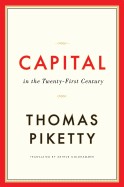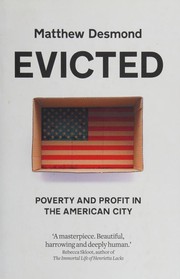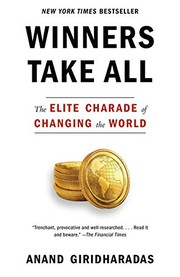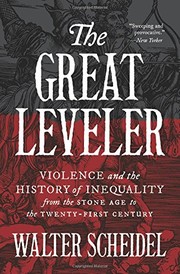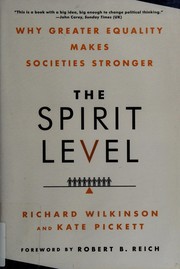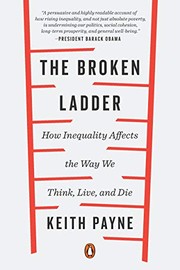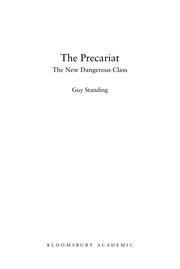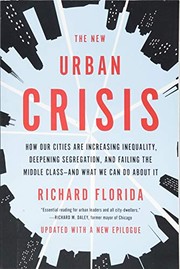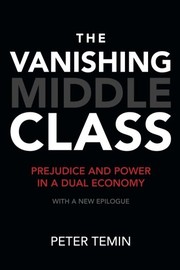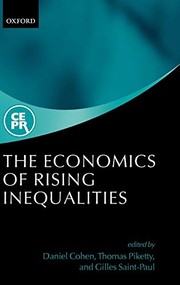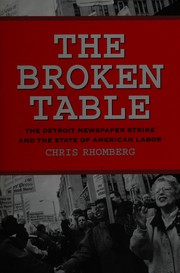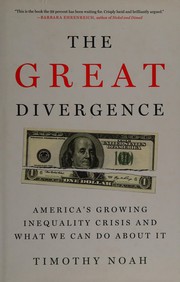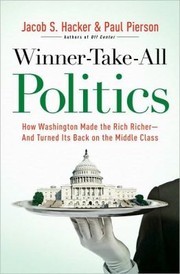Are you looking for a thought-provoking book on income inequality? Look no further! We have curated a list of the 20 best books about income inequality that will challenge your perspective and spark important conversations. Whether you’re interested in the economic, social, or political aspects of income inequality, these books offer diverse and insightful perspectives that will leave a lasting impact. Dive into these income inequality books and explore the complex and pressing issue of wealth disparity.
Contents
- 1 20 Best Books About Income Inequality
- 2 Capital in the Twenty-First Century
- 3 The Price of Inequality: How Today’s Divided Society Endangers Our Future
- 4 Evicted: Poverty and Profit in the American City
- 5 Winners Take All: The Elite Charade of Changing the World
- 6 The Great Leveler: Violence and the History of Inequality from the Stone Age to the Twenty-First Century
- 7 The Spirit Level: Why Greater Equality Makes Societies Stronger
- 8 The Broken Ladder: How Inequality Affects the Way We Think, Live, and Die
- 9 The Unbanking of America: How the New Middle Class Survives
- 10 The Color of Law: A Forgotten History of How Our Government Segregated America
- 11 The Precariat: The New Dangerous Class
- 12 The Tyranny of Merit: What’s Become of the Common Good?
- 13 The Age of Surveillance Capitalism: The Fight for a Human Future at the New Frontier of Power
- 14 The New Urban Crisis: How Our Cities Are Increasing Inequality, Deepening Segregation, and Failing the Middle Class—and What We Can Do About It
- 15 The Vanishing Middle Class: Prejudice and Power in a Dual Economy
- 16 The Economics of Inequality
- 17 The Broken Table: The Detroit Newspaper Strike and the State of American Labor
- 18 The Great Divergence: America’s Growing Inequality Crisis and What We Can Do about It
- 19 The Price We Pay: What Broke American Health Care—and How to Fix It
- 20 Winner-Take-All Politics: How Washington Made the Rich Richer—And Turned Its Back on the Middle Class
- 21 Dark Money: The Hidden History of the Billionaires Behind the Rise of the Radical Right
- 22 Conclusion
- 23
- 24 Books about Bullying For Young Adults: 2024's Best Titles
- 25 Monsters Books: A Curated 2024 Updated List
- 26 Reading List of Moving To France Books – 2024 Update
20 Best Books About Income Inequality
Capital in the Twenty-First Century
by Thomas Piketty
Capital in the Twenty-First Century by Thomas Piketty is a groundbreaking book on income inequality. Piketty delves into the historical patterns of wealth distribution and explores the drivers behind the growing gap between the rich and the rest of society. Through meticulous research and analysis, he argues that the concentration of wealth in the hands of a few is not a natural outcome, but rather a result of specific economic and social forces. The book offers a thought-provoking examination of the dynamics of capitalism and the implications for society. Piketty’s work has sparked global discussions on wealth disparity and has become a seminal text for those interested in understanding the complexities of modern economics and the challenges posed by income inequality.
The Price of Inequality: How Today’s Divided Society Endangers Our Future
by Joseph E. Stiglitz
The Price of Inequality: How Today’s Divided Society Endangers Our Future by Joseph E. Stiglitz is a thought-provoking book on income inequality. Stiglitz, a Nobel Prize-winning economist, delves into the disparities in wealth and opportunities that plague modern societies, offering a comprehensive analysis of the causes and consequences of this pervasive issue. With compelling evidence and persuasive arguments, Stiglitz explores the impact of inequality on economic growth, social cohesion, and democracy, shedding light on the urgent need for reforms to address this pressing concern. Through a combination of rigorous research and accessible language, the book presents a compelling case for action to tackle the root causes of inequality and build a fairer and more equitable society. The Price of Inequality is a must-read for anyone interested in understanding and addressing the complex challenges posed by income inequality.
Evicted: Poverty and Profit in the American City
by Matthew Desmond
Evicted: Poverty and Profit in the American City, written by Matthew Desmond, is a powerful and eye-opening book about income inequality in America. Desmond takes readers into the heart of Milwaukee, where he follows the lives of eight families struggling to keep a roof over their heads. Through vivid storytelling and extensive research, Desmond exposes the harsh reality of eviction and its devastating impact on the lives of the poor. He delves into the exploitative nature of the housing market and the profit-driven motives of landlords, offering a compelling insight into the systematic challenges faced by low-income families. Evicted shines a light on the urgent need for social and economic reform, making it a must-read for anyone interested in understanding and addressing the complex issue of poverty and housing instability in America.
Winners Take All: The Elite Charade of Changing the World
by Anand Giridharadas
Winners Take All: The Elite Charade of Changing the World by Anand Giridharadas is a thought-provoking book on income inequality that challenges the notion of philanthropy and elite-driven social change. Giridharadas argues that while the wealthy and powerful claim to be making a positive impact on society through their charitable efforts, they are actually perpetuating the very systems that create income disparity. Drawing on interviews with influential figures in business and politics, the author exposes the self-serving nature of so-called do-gooders and the ways in which their actions maintain the status quo. This eye-opening book about income inequality sheds light on the complexities of social change and urges readers to question the motives behind efforts to address inequality. Giridharadas’ critique of the elite’s influence in shaping societal progress is a compelling call to action for a more equitable future.
The Great Leveler: Violence and the History of Inequality from the Stone Age to the Twenty-First Century
by Walter Scheidel
The Great Leveler by Walter Scheidel is a thought-provoking book about income inequality throughout history. Scheidel examines the ways in which violence, war, revolution, and pandemics have shaped societies and played a crucial role in reducing economic disparities. From the Stone Age to the present day, the book explores how significant events have led to periods of greater equality. Scheidel’s analysis challenges the notion that economic inequality is inevitable, and he offers a compelling argument that extreme inequality can only be addressed through drastic, disruptive measures. This book provides a fascinating and insightful look at the history of income disparity, shedding light on the complex forces at play and offering a fresh perspective on the issue. The Great Leveler is a must-read for anyone interested in understanding the dynamics of income inequality and its impact on societies.
The Spirit Level: Why Greater Equality Makes Societies Stronger
by Richard Wilkinson and Kate Pickett
The Spirit Level: Why Greater Equality Makes Societies Stronger is a thought-provoking book on income inequality that delves into the social and economic implications of unequal societies. Authors Richard Wilkinson and Kate Pickett present compelling evidence to demonstrate how income inequality negatively impacts various aspects of society, including health, education, and crime rates. Through extensive research and data analysis, the authors argue that more equal societies not only benefit the disadvantaged but also lead to better outcomes for everyone, including the wealthy. The book offers a compelling case for the urgent need to address income inequality and its far-reaching consequences. The Spirit Level is a powerful and insightful read that challenges conventional thinking about the relationship between income inequality and societal well-being.
The Broken Ladder: How Inequality Affects the Way We Think, Live, and Die
by Keith Payne
The Broken Ladder by Keith Payne is a thought-provoking book on income inequality that delves into the psychological and social impacts of economic disparity. Through compelling research and real-life examples, Payne explores how inequality affects our behavior, decision-making, and overall well-being. Drawing on a wide range of disciplines, including psychology, sociology, and economics, the book offers a fascinating analysis of the ways in which inequality shapes our perceptions and influences our lives. From the workplace to our communities, Payne uncovers the far-reaching consequences of income inequality and offers insights into how we can work towards a more equitable society. The Broken Ladder is a must-read for anyone interested in understanding the complex dynamics of inequality and its profound effects on individuals and society as a whole.
The Unbanking of America: How the New Middle Class Survives
by Lisa Servon
The Unbanking of America by Lisa Servon is a fascinating exploration of the financial struggles faced by the new middle class in the United States. In this eye-opening book on income inequality, Servon delves into the reasons why many Americans are turning away from traditional banks and seeking alternative financial services. Through in-depth research and personal interviews, she uncovers the challenges and barriers that prevent people from accessing mainstream banking, shedding light on the stark realities of income inequality in America. Servon’s insightful analysis provides valuable insights into the financial lives of ordinary Americans and offers thought-provoking solutions for addressing the widening wealth gap. This compelling book about income inequality is an essential read for anyone seeking to understand the complexities of modern-day financial struggles and the impact of income inequality on society.
The Color of Law: A Forgotten History of How Our Government Segregated America
by Richard Rothstein
The Color of Law: A Forgotten History of How Our Government Segregated America by Richard Rothstein is a groundbreaking book on income inequality. Rothstein uncovers the deliberate and systematic government policies that perpetuated segregation and inequality in America. Through meticulous research and compelling storytelling, he reveals how federal, state, and local governments actively enforced housing segregation, leading to unequal access to education, employment, and wealth-building opportunities for Black Americans. This eye-opening book about income inequality challenges the commonly held belief that segregation was solely a result of individual prejudice and discriminatory practices. It sheds light on the role of government in creating and perpetuating racial segregation, and the lasting impact it continues to have on our society today. The Color of Law is a must-read for anyone seeking to understand the roots of income inequality and the ongoing struggle for racial justice in America.
The Precariat: The New Dangerous Class
by Guy Standing
The Precariat: The New Dangerous Class by Guy Standing is a thought-provoking book on income inequality that delves into the complexities of modern-day labor and the growing precariousness of work. Standing explores the rise of a new social class, the precariat, comprised of individuals facing unstable employment, low wages, and a lack of social protection. He argues that this group is vulnerable to exploitation and represents a threat to social stability.
The book offers a compelling analysis of the economic and political forces driving these changes, and proposes innovative solutions to address the challenges faced by the precariat. Standing’s insightful exploration of the income inequality book makes it an essential read for anyone interested in understanding the shifting dynamics of labor and the urgent need for policy reform.
The Tyranny of Merit: What’s Become of the Common Good?
by Michael J. Sandel
The Tyranny of Merit: What’s Become of the Common Good? by Michael J. Sandel is a thought-provoking book on income inequality and its impact on society. Sandel examines the role of meritocracy in widening the gap between the rich and the poor, and explores the consequences of this growing inequality on the common good. Through compelling examples and insightful analysis, the book challenges the prevailing belief that success is solely the result of individual effort and talent, and calls for a reexamination of the meritocratic system. Sandel’s exploration of the moral and political implications of income disparity makes this book a must-read for anyone interested in understanding and addressing the complexities of modern society.
The Age of Surveillance Capitalism: The Fight for a Human Future at the New Frontier of Power
by Shoshana Zuboff
The Age of Surveillance Capitalism by Shoshana Zuboff is a groundbreaking book on income inequality that explores the rise of tech giants and their exploitation of personal data for profit. Zuboff delves into the ways in which companies like Google and Facebook have turned human behavior into a commodity, creating a system of surveillance capitalism that threatens individual autonomy and democracy. She argues that this new form of capitalism not only perpetuates income inequality, but also erodes privacy and poses a threat to human freedom. Zuboff’s insightful analysis and compelling arguments make this book about income inequality a must-read for anyone concerned about the future of technology, power, and human agency.
The New Urban Crisis: How Our Cities Are Increasing Inequality, Deepening Segregation, and Failing the Middle Class—and What We Can Do About It
by Richard Florida
The New Urban Crisis by Richard Florida is a thought-provoking book about the challenges facing modern cities. Florida explores the growing divide between the wealthy and the middle class, as well as the increasing segregation within urban areas. He discusses how the rise of the creative class has contributed to these issues, and offers potential solutions for creating more inclusive and equitable cities. Drawing on extensive research and real-world examples, Florida provides a compelling analysis of the complex factors driving the new urban crisis. This book is a must-read for anyone interested in understanding the dynamics of income inequality in urban environments and seeking innovative strategies for addressing these pressing issues.
The Vanishing Middle Class: Prejudice and Power in a Dual Economy
by Peter Temin
The Vanishing Middle Class: Prejudice and Power in a Dual Economy by Peter Temin is a thought-provoking book on income inequality that delves into the growing economic divide in modern society. Temin explores the concept of a dual economy, where a small elite holds the majority of the wealth and power, while the middle class is increasingly marginalized. Through a combination of historical analysis and contemporary data, Temin uncovers the mechanisms that perpetuate this inequality, including prejudice and unequal access to opportunities. This book about income inequality offers a compelling and accessible examination of the structural forces at play in creating and maintaining a dual economy. Temin’s work is essential reading for anyone seeking to understand the complex dynamics of modern capitalism and its impact on society. It provides a sobering insight into the challenges faced by the middle class and the urgent need for change in the face of widening income inequality.
The Economics of Inequality
by Thomas Piketty
The Economics of Inequality by Thomas Piketty is a groundbreaking book on income inequality that delves into the underlying economic and social factors contributing to the unequal distribution of wealth. Piketty provides a comprehensive analysis of the trends and patterns of inequality, drawing on historical data and contemporary trends to make a compelling case for the urgency of addressing this issue. The book offers a thought-provoking examination of the consequences of inequality and presents innovative policy solutions to mitigate its impact. With its rigorous research and accessible writing style, this income inequality book is an essential read for anyone seeking a deeper understanding of the complexities surrounding wealth distribution and its implications for society.
The Broken Table: The Detroit Newspaper Strike and the State of American Labor
by Chris Rhomberg
The Broken Table by Chris Rhomberg is a compelling book about income inequality that delves into the Detroit newspaper strike and its impact on American labor. Rhomberg provides a thorough analysis of how the strike reflected the larger issues of corporate power, labor rights, and economic inequality in the United States. Through detailed research and insightful interviews, the author paints a vivid picture of the struggle for fair wages and working conditions in an era of growing income inequality. The book offers a thought-provoking exploration of the complex dynamics between labor, management, and government, shedding light on the challenges faced by workers in an increasingly unequal society. The Broken Table is a must-read for anyone interested in understanding the intersection of labor struggles and income inequality in contemporary America.
The Great Divergence: America’s Growing Inequality Crisis and What We Can Do about It
by Timothy Noah
The Great Divergence: America’s Growing Inequality Crisis and What We Can Do about It by Timothy Noah is a groundbreaking book on income inequality. Noah delves into the history, economics, and politics behind the widening gap between the rich and the poor in America. Through meticulous research and compelling analysis, he explores the various factors contributing to this divide, including technological advancements, globalization, and policy decisions. Noah also offers thought-provoking solutions to address this income inequality, making it a must-read for anyone concerned about social justice and economic fairness. This eye-opening book about income inequality provides a comprehensive understanding of the issue and empowers readers with the knowledge to advocate for change.
The Price We Pay: What Broke American Health Care—and How to Fix It
by Marty Makary
The Price We Pay by Marty Makary is a powerful exposé on the broken American health care system. This eye-opening book delves into the hidden costs, predatory practices, and lack of transparency that contribute to the exorbitant prices and inequality within the healthcare industry. Makary, a surgeon and professor at Johns Hopkins University, offers an in-depth analysis of the factors driving up healthcare costs and the impact it has on individuals and families. Through real-life stories and compelling data, he shines a light on the harmful consequences of this broken system and offers practical solutions for reform. This insightful and urgent book sheds light on the economic injustices and disparities within our healthcare system, making it a must-read for anyone interested in understanding and addressing the issues of income inequality and healthcare access in America.
Winner-Take-All Politics: How Washington Made the Rich Richer—And Turned Its Back on the Middle Class
by Jacob S. Hacker and Paul Pierson
Winner-Take-All Politics: How Washington Made the Rich Richer—And Turned Its Back on the Middle Class by Jacob S. Hacker and Paul Pierson is a groundbreaking book on income inequality that explores how government policies and political decisions have contributed to the widening wealth gap in America. The authors argue that the concentration of economic power in the hands of the wealthy is not a result of natural market forces, but rather the outcome of deliberate choices made by policymakers. Through meticulous research and compelling analysis, Hacker and Pierson shed light on the ways in which the political system has favored the interests of the rich at the expense of the middle class. This eye-opening book offers a sobering look at the roots of income inequality and the urgent need for reform. Winner-Take-All Politics is essential reading for anyone seeking to understand the dynamics of wealth disparity and its impact on society.
Dark Money: The Hidden History of the Billionaires Behind the Rise of the Radical Right
by Jane Mayer
Dark Money: The Hidden History of the Billionaires Behind the Rise of the Radical Right by Jane Mayer is a captivating book about income inequality. Mayer exposes the secretive world of wealthy elite and their efforts to shape American politics. She delves into the deep pockets of billionaires who use their fortunes to influence elections, think tanks, and media outlets in order to advance their conservative agenda. Mayer’s investigative journalism shines a light on the covert networks, dark money, and the powerful individuals behind them. This eye-opening book on income inequality reveals the staggering influence of money in politics and its impact on democracy. It’s a must-read for anyone interested in understanding the hidden forces driving the rise of the radical right and the widening gap between the wealthy and the rest of society.
Conclusion
Income Inequality is a pressing issue that affects millions of people around the world. The 20 best books about income inequality provide valuable insights into the root causes and consequences of this societal problem. From in-depth analyses of economic systems to personal narratives of struggle and resilience, these books offer a comprehensive understanding of income inequality and its impact on individuals and communities. Whether you’re an activist, scholar, or concerned citizen, delving into these books will undoubtedly deepen your understanding of this critical issue and inspire you to take action.
Which Income Inequality book is best?
The best book on Income Inequality can vary with personal preference, but three widely recommended titles are:
- Capital in the Twenty-First Century by Thomas Piketty,
- The Price of Inequality: How Today’s Divided Society Endangers Our Future by Joseph E. Stiglitz,
- Evicted: Poverty and Profit in the American City by Matthew Desmond.
Each offers valuable insights and could be a great starting point.
What are the best books to learn about Income Inequality?
For those looking to learn about Income Inequality, there is a wealth of literature that can provide a comprehensive understanding of the subject. Some of the most highly recommended books include:
- Capital in the Twenty-First Century by Thomas Piketty,
- The Price of Inequality: How Today’s Divided Society Endangers Our Future by Joseph E. Stiglitz,
- Evicted: Poverty and Profit in the American City by Matthew Desmond,
- Winners Take All: The Elite Charade of Changing the World by Anand Giridharadas,
- The Great Leveler: Violence and the History of Inequality from the Stone Age to the Twenty-First Century by Walter Scheidel,
- The Spirit Level: Why Greater Equality Makes Societies Stronger by Richard Wilkinson and Kate Pickett,
- The Broken Ladder: How Inequality Affects the Way We Think, Live, and Die by Keith Payne,
- The Unbanking of America: How the New Middle Class Survives by Lisa Servon,
- The Color of Law: A Forgotten History of How Our Government Segregated America by Richard Rothstein,
- The Precariat: The New Dangerous Class by Guy Standing
These books offer a range of perspectives on Income Inequality, covering various aspects and approaches to the subject.
What are the best books on Income Inequality?
The best books on Income Inequality include:
- Capital in the Twenty-First Century by Thomas Piketty,
- The Price of Inequality: How Today’s Divided Society Endangers Our Future by Joseph E. Stiglitz,
- The Tyranny of Merit: What’s Become of the Common Good? by Michael J. Sandel,
- The Age of Surveillance Capitalism: The Fight for a Human Future at the New Frontier of Power by Shoshana Zuboff,
- The Unbanking of America: How the New Middle Class Survives by Lisa Servon,
- The Spirit Level: Why Greater Equality Makes Societies Stronger by Richard Wilkinson and Kate Pickett.
Each offers unique insights into the subject. While these books on the topic of Income Inequality are highly regarded, it’s important to note that any list of ‘best’ books is subjective and reflects a range of opinions.
What are the best Income Inequality books of all time?
Choosing the best Income Inequality books of all time can vary depending on who you ask, but seven titles that are often celebrated include
- Capital in the Twenty-First Century by Thomas Piketty,
- The Price of Inequality: How Today’s Divided Society Endangers Our Future by Joseph E. Stiglitz,
- The Great Leveler: Violence and the History of Inequality from the Stone Age to the Twenty-First Century by Walter Scheidel,
- The Unbanking of America: How the New Middle Class Survives by Lisa Servon,
- The Precariat: The New Dangerous Class by Guy Standing,
- The Age of Surveillance Capitalism: The Fight for a Human Future at the New Frontier of Power by Shoshana Zuboff,
- and The Tyranny of Merit: What’s Become of the Common Good? by Michael J. Sandel.
Each of these books has made a significant impact in the field of Income Inequality and continues to be influential today.

